Many leading foreign scientists have already joined our community. Below are some of these outstanding scientists:
Tiziano Camporesi (Italy)
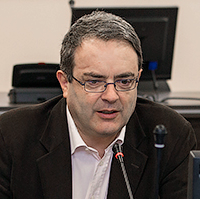
- Head of CMS collaboration
- Senior Scientist - PH Department, CERN

When MEPhI joined CMS we realised that a new era was starting for the relations between CMS and Russia: the fact that we were attracting one of the most prestigious Russian Academic institutions to join our experiment, meant that we would start profiting from the fresh contribution of excellent scientists and highly selected students.
Those initial considerations have been confirmed: in the last 24 months the contributions from MEPhI became very visible within the CMS community and they are among the teams shaping the future upgrade of the experiment. In parallel one can start seeing their impact on the Physics arena. As responsible for the experiment I can say that it is having institutions like MEPHI in our collaboration gives me confidence about being successful in exploiting our physics program and tackling the challenges of the future upgrades.
Tanabe Tetsuo (Japan)
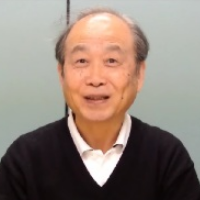
- Doctor of Engineering
- Post-doctoral Fellow (Research Professor) in the Faculty of Engineering Sciences, Kyushu University

I'm Tetsuo Tanabe, professor at Kyushu University, Japan. I'm also a professor at MEPhI, National Research Nuclear University. Studying physics and chemistry gives students and graduate students a wonderful opportunity to find friends not only in your country but also abroad. For example, I successfully collaborate with MEPhI university and enjoy the collaboration very much. Nowadays, international collaborations become quite important in all fields. I hope that you, too, will be able to enter MEPhI and visit Japan to contribute to making artificial sun on the Earth with the development of plasma physics solving the complicated problems of controlling sun nuclear fusion.
Nordlund Kai Henrik (Finland)
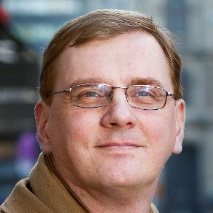
- Doctor of Philosophy
- Professor, Faculty of Science, Department of Physics, University of Helsinki

I am a professor of computational materials physics at University of Helsinki and I am also a visiting professor at MEPhI this year. I'd like to say that I really like my work. I am the head of the research group and we are doing research on many aspects of computational materials physics and materials interactions with plasmas. It's really exciting and nice field to work in.
I'm also very happy to collaborate with MEPhI and find people at MEPhI who doing research in the field of plasma physics and plasma materials interactions. I'm looking forward to more results coming from the current work that we are doing together.
David Besson (USA)
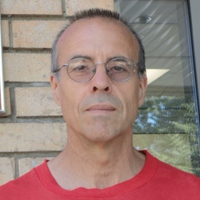
- Doctor of Philosophy
- Professor of the University of Kansas

Of course, beyond the spirit of friendship and cooperation that I find at MEPhI, there are a few particulars that particularly impress me. First, the students have this custom of standing up before faculty walk into a lecture hall to begin a lecture. In the US, students yawn (or groan) when professors walk into the lecture room. That fact notwithstanding, the social separation between faculty and students is, I think, smaller in Russia (or, at least at MEPhI), which is, I think, preferable. One thing I particularly like about MEPhI is the location and proximity to Kolomenskoe; each morning while I'm here I get an opportunity to walk along one of the world's great rivers, with millennia of history flowing between its shores.
Francis Albert Garner (USA)
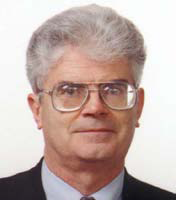
- Doctor of Philosophy
- Research Scientist, Department of Nuclear Engineering, Texas A&M University

It has been my pleasure the last three years to participate in an ever increasing involvement with the Moscow Engineering Physics Institute. I have been requested to provide feedback on my experiences with the Institute, its staff, students, etc. I have visited MEPhI ~10 times over the last several decades. The best way to summarize my overall opinion is to note that this last year I have joined the faculty of MEPhI, which attests to my very strong opinion of the Institute. I was first attracted to MEPhI many years ago as I became aware of and then participated in scientific activities led by Professors Boris Kalin and Ivan Chernov. I consider both of these individuals as world class scientists and teachers.
Earlier, it was also my pleasure to participate with MEPhI and several other Russian laboratories in a Skolkovo Initiative project of some complexity. This activity has given me an appreciation for the ability of MEPhI staff to organize and conduct a multi-partner activity within Russia.
With respect to the graduate and post-graduate staff, I have interacted with about 10 individuals, all of whom impress me with their expertise, work ethic and dedication to the scientific enterprise. My experience with undergraduate staff is not so extensive, however. Only in the last year where I have been presenting lectures have I had interactions. In general the class groups that I have faced appear to be dedicated and well prepared.
The only aspect that needs improvement is that the undergraduates do not appear to be facile enough in English to participate fully in my lectures that have been conducted only in English. Therefore I have requested that I be allowed to present my lectures with sequential translation performed by my Russian partner, Natalia Brikotnina. Thus I am certain that the students will not only better appreciate the lecture, but they will get some value in increasing their English perception.
With one exception, my appraisal of MEPhI on the educational and scientific level is very positive. The exception lies not with the staff or students, but the bureaucracy within they must operate. While I cannot offer specifics on the problems faced by the staff, I can comment on my experience.
I have served as a consultant and professor for many organizations and have a lot of experience with registering, signing contracts, etc. and then initiating work. By US, European and Japanese standards, I found the contract process at MEPhI to be very long, uncertain, inefficient and subject to many changes during the process. I see the bureaucracy aspect of MEPhI to be a major obstacle to becoming a fully world-class university, especially if many international partners are desired to participate.
In general, however, I am very pleased and proud to continue my association with MEPhI.
Michael Philip Short (USA)
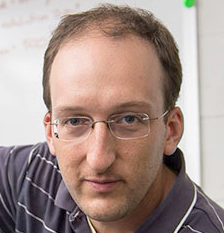
- Doctor of Philosopy
- Associate professor, Department of Nuclear Science and Engineering, Massachusetts Institute of Technology

The pluses have been many, and because I had few expectations (never having worked with a Russian university before), they were quite pleasant to learn. The minuses mostly have to do with administrative issues, as I've seen that the number of approvals and signatures required for anything hinders both research within MEPhI, as well as collaboration outside of MEPhI. First, I will elaborate on the good aspects, as they far outnumber those that need improvement. So far, I have been pleasantly surprised at the friendliness, openness, and intellectual capabilities of MEPhI students. Working with MEPhI has been my first experience collaborating closely with an international university outside of Japan and Singapore. These two countries, plus the U.S., have the luxury of large federal research programs and easier access to equipment. With that comparison in context, I am very impressed at the level of work that MEPhI students are able to accomplish, as it requires a great deal of ingenuity, creativity, and hard work to succeed.
My most significant experience working directly with MEPhI students was as the remote instructor for the senior project design course, where MIT and MEPhI students designed, side by side, a simulation framework to predict the void swelling vs. time throughout a wire wrapped fast reactor fuel cladding rod. This project required the development of teamwork, open-ended simulation development, and oral presentation skills in English. The MEPhI students rose to the challenge quite well, delivering high quality presentations showing their hard work, completely understandable by the MIT students on the other side of the world. My visit to MEPhI in November to work with the students near the late stages of the project showed that they had indeed worked very hard on the project, and worked well with me to continue building their simulation framework.
In addition, having two chances to see the students' presentations at the MEPhI winter schools on radiation damage, in 2014 and 2015, showed me that they are indeed capable of advanced PhD level research and oral expression, the latter of which students struggle with across the globe, even at MIT. The analytical abilities of MEPhI students often outperform their American counterparts, as I believe that the mathematical treatment of analytical problems in science is more thoroughly treated and drilled in the Russian educational system. Often students possess either expertise in analytics or creativity. Fortunately I see the MEPhI students as already analytically excellent, and rising to the challenges of open-ended research and design problems. I take this as a very good sign.
The difficulties in working with MEPhI come not from the faculty, staff, and students, but rather from the amount of administration required to get things done. I noticed this as it is often easier to meet with MEPhI staff off campus, as the difficulties of getting foreigners a pass for entry appear to be high. I am grateful to my MEPhI hosts for spending so much of their time to get me on campus, as I do recognize how difficult it must be. I also understand that as a national federal nuclear university with a research reactor, access is a more sensitive issue. However, I do believe that shrinking the "fence" for access would greatly aid collaboration, as then foreign collaborators could meet on campus, in labs, and in classrooms much more easily. If I've learned anything from my collaborations at the US national laboratories, while virtual communication is convenient, absolutely nothing beats face-to-face communication, and side-by-side research. Other difficulties arose when seeking joint proposals, such as the University Partnership Program (UPP). Part of a critical collaborative ecosphere is the ability for the administration to be agile and responsive in preparing proposals, contracts, and especially giving permission for its faculty and students to apply. Our experience between MIT and MEPhI in seeking a UPP project was hampered by these administrative difficulties, despite heroic efforts by the staff and faculty in seeking these approvals. In my opinion, a top 100 university must have all parts of its machine working at the same, high speed & efficiency. While I firmly believe the faculty, staff, and students are performing at a top 100 level, it seems that they are continuously held back by remenants of an older, more bureaucratic system, which has not demonstrated the ability to respond to changing conditions and international calls for proposals as quickly as other universities. In short, I believe that the people and research are already at the top 100 level, though other aspects of the university system need to come up to speed for the people to achieve their full, internationally collaborative potential. This may be an aspect of the Russian cultural or bureaucratic system with which I am not familiar. However, with the international standard for timely communication and approval being faster than that in Russia, streamlining the back-end administrative processes is, in my opinion, the most important aspect to improve to bring MEPhI into the top 100 universities in the world. Once this is done, I am fully confident that MEPhI will be recognized as a top international university, with more requests for international collaboration, student exchange, and invited talks/papers, all measures of outside recognition.
Patrick Berghaus (Germany)
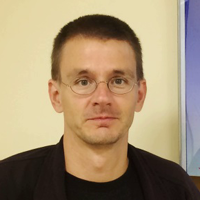
- Doctor of Philosophy
- Member of IceCube Collaboration

Work in MEPhI is very pleasant for me because of the many nice colleagues I met here. The student work in our laboratory is of very high quality and the construction of new installations for the NEVOD complex looks very promising. All in all I found that the University has great potential for the future and I sincerely wish that it will be realized to its full extent.
Ilya Usoskin (Finland, Russia)
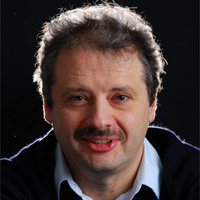
- Professor, Head of Oulu Cosmic Ray station, University of Oulu, Finland
- Vice-Director of ReSoLVE Center of Excellence

It was my pleasure to stay at MEPhI, in the PAMELA group in the department of experimental nuclear physics and cosmophysics, for a collaborative work. My impressions from the visit were very positive. I was nicely surprised by the great enthusiasm and high professionalism of researchers -- their qualification is indeed of the international level. It was extremely good to see a large number of young researchers, from M.Sc. students to fresh postdocs, all highly motivated and focused on high-level research. During the stay, I was invited to give two lectures, on long-term cosmic ray variability and the method of cosmogenic isotopes. The auditorium was fully packed with students who were very active and curious about the topic which was new for them. The level of communication and interaction is very high. As concerning scientific work, research performed at MEPhI is at a very high level, including both design and operation of one of the best space-borne cosmic-tray detectors and scientific data analysis. Our collaboration with MEPhI develops very well, on mutually beneficial (in the scientific sense) direction. One collaborative paper has been already submitted to a peer-review journal, more are in progress. To say it brief, I was very positively impressed by both the excellent research performed at MEPhI and their efforts in education of the next generation scientists.
On the other hand, practical difficulties should be mentioned, related to bureaucratic problems appearing virtually everywhere, from arranging an entrance pass to dealing with the bank. The level of bureaucracy and paperwork is tremendously high. Thanks to the help of my hosts, it was all done, but a feeling of overcoming a hard obstacle has remained. I hope it will be made easier in the future.
Overall, I am very happy with the visit, despite some bureaucratic difficulties, and look forward for further fruitful collaboration with MEPhI.
Zeng Shi (China)
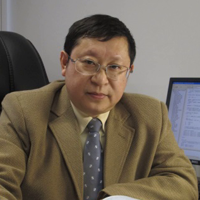
- Doctor of Philosophy
- Full Professor at Tsinghua University, Department of Engineering Physics

For the first time I visited MEPhI in 2011. Since that time I have been to the University about 3 times. Looking back, I can say that the territory where the academic and administrative buildings of the University are situated, has changed significantly just in a few years. The environment is wonderful with many beautiful trees, flowers and flowerbeds. Also, great transformations are visible outside and inside buildings. The busy and active academic atmosphere impressed me very much. I know that MEPhI seeks to be among the 100 best universities of the world. I wish you a great success in achieving this goal, and I believe that the goal can be achieved with the efforts of all staff and students of MEPhI.
Javier Lopez (Spain)
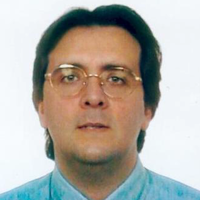
- Master and PhD degrees, Professor
- Full Professor of the Computer Science Department at University of Malaga, Spain
- Member of IPICS Summer Schools since 2002

I have participated since 2002 in the differnet IPICS Summer Scools that have taken yearly. During all these years I have had the opportunity to teach courses on different security topics like Public Key Infrastructures, WSN Security, and WSN Privacy to the many students that have attended IPICS. Among them, I found that students of Prof. Natalia Miloslavskaya always showed very high potential. They paid special interest and attention to the lectures, and demonstrated to have very good skills. Moreover, they obtained high qualifications in the essays that I had the opportunity to assess. In summary, I can confirm that the quality of students of Prof. Natalia Miloslavskaya was much above the average of IPICS students.
Julio C. Fabris (Brazil)
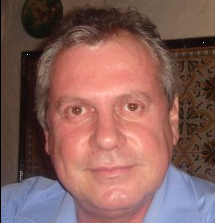
- Doctor of Philosophy
- Full Professor, Federal University of Espírito Santo

It has been for me an extraordinary experience this close contact with MEPhI, their researchers and their students. The scientific environment is very nice, and I could enjoy the presence of people working on particle physics, cosmology, astrophysics. Today, these subjects are very closely related, and it is very interesting at the same time to have the opportunity of talking with experts in these different domains. I was quite impressed by the constant presence of students and young researchers. This is fundamental in order to maintain the dynamism of the Institution. It was a pleasure to feel the presence even of high school students that come to MEPhI to begin the contact with science as it is done.
I have had the experience to give lectures on quite advanced topics on cosmology to the MEPhI graduating students. Besides their interest in learning, what has been particularly impressive to me is their capacity to approach a new subject in a very independent way. I think that the close contact with a research ambiance is responsible for this positive attitude, which is not so common in Brazil, at least.
The discussions with the researchers, the graduating students, the PhDs were always very exciting. And I would have no words to acknowledge the kindness and warm ambiance offered by everybody in MEPhI.
Nobuyuki Hasebe (Japan)
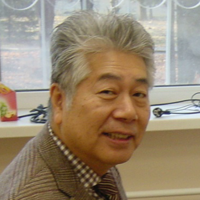
- Doctor of Science
- Professor, Research Institute for Science and Engineering, Waseda Unversity

The universities interchange between Waseda University and MEPhI began more than 20 years ago. Firstly, the interchange between them was initiated by Prof. Dmitrenko and late Prof. Doke who was my mentor. The Memorandum of Understanding between Research Institute of Science and Engineering, Waseda University and Department of Experimental Nuclear Physics and Cosmophysics, MEPhI was come in 1994.
I clearly remember that we were shown a great deal of hospitality by all the people we met at the MEPhI, when I visited at MEPhI in 1998 with Prof. E. Shibamura. It was the first visit to MEPhI for me. Then we initiated a close and successful connection and collaboration between the two institutes. International collaboration for more than fifteen years allows us to organize now joint research work on new more close partnership.
Investigation of scintillation and ionization yields, transport characteristics of electrons in high density Xenon gas and its mixtures with molecular additions have been investigated through the exchange of research stuff and graduate students of both universities. The knowledge and technology about the characteristics are quite essential for the measurements of gamma-rays and charged particles, when various experiments based on rare gas Xenon are in the stage of development for the search of dark matter and beta double decay, and radiation detectors in space science. The information is also important for further perfection of Xenon gamma-ray spectrometers in the field of high-energy astrophysics, engineering geology and planetary science as well as nuclear and particle science. These detectors are also effective for environmental monitoring, nuclear facility, and prevention of radioactive/radiological terrorist acts and so on. Therefore, we had discussed the detailed plans of our joint research and some technical details of nuclear radiation experiments. Moreover, we also confirmed the importance of bilateral relationship, the exchange of graduate students and young scientists, educational training programs and courses, distant TV-lectures. Exchanges of many graduate students, young students, researchers were successfully conducted. I made intensive lectures on "Radiation Physics and Its Application to Space Science" in 2014 and 2015 for MEPhI students.
Meanwhile, we developed international and scientific relations and contracted the University Agreement between Waseda University and MEPhI in 2001. Subject of the agreement : cooperation in joint educational and research projects including students, project stuff and faculty members exchange, organization of lectures and seminars, exchange of information.
Thus, MEPhI and Waseda University have a long history of close collaboration; promoting interaction among laboratories, developing the cutting edge researches in the common research interests, maintaining a long-term collaboration between researchers and scientists of two universities, and strongly supporting exchange programs of education within the framework of teaching activities.
Piero Spillantini (Italy)
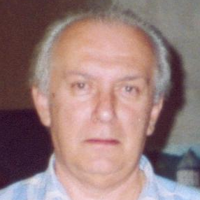
- Dottore in fisica
- Honoris causa
- Professor, University of Florence (Italy)

My collaboration with MEPhI began in 1992 when I met Prof. Arkady Galper and constructed with MEPhI and other Russian institution the Russian Italian Mission (RIM) program. This collaboration was very successful; myself and my collaborators learned a lot about cosmic ray physics and how use space for experiments: really Prof. Galper and his colleagues opened us the access to space techniques. With them we conducted several missions on satellites and life science mission on board of MIR space station and on the Russian sector of the ISS. The last CR mission, PAMELA, concluded the RIM program and was a big success: it was in nearly continuous data taking in orbit for 10 years and reached very important results in astroparticle physics. Fundamental was the close cooperation in all the phases of the work, from the elaboration of the projects, the realization of the instruments, the running of the missions and the analysis of the collected data. I hope that the collaboration with MEPhI could continue in the future for the conception of new missions, such as the Gamma-400 mission, and their achievement.
Bart Preneel (Belgium)
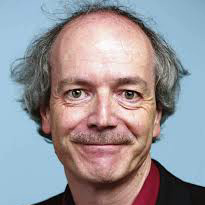
- Master and PhD degrees, Professor
- Full Professor of the Electrical Engineering Department of the Katholieke University Leuven, Belgium
- ICIS International Council Member

I confirm based on my teaching experience at MEPhI that the students have a solid scientific basis to become cyber security experts. They are highly motivated and keen to expand their knowledge and understanding. I am very confident that they will be excellent professionals.
Stefanos Gritzalis (Greece)
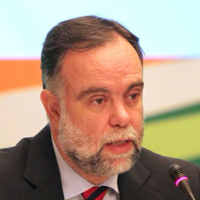
- Doctor of Philosophy
- Professor, University of the Aegean School of Sciences, Department of Information & Communication Systems Engineering

As the General Organiser of IPICS 2015 summer school I met and collaborated with the students participating from the National Research Nuclear University MEPhI (Moscow Engineering Physics Institute) in Russia. All students have demonstrated very good basic knowledge on the topics delivered during the summer school. They were actively participating in every lecture, placing interesting and focused questions to the speakers and also providing correct answers when asked. Also they showed a very collaborative character when working in groups for fulfilling small projects assigned by the speakers. My overall impression about NRNU students is very positive and I am looking forward for their participation in our future events.
Peter Senger (Germany)
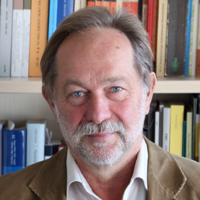
- Doctor of Philosophy
- Head of CBM Department at GSI

Groups from MEPhI play an important and visible role in the development of the Compressed Baryonic Matter (CBM) Experiment at the future Facility of Antiproton and Ion Research (FAIR) in Darmstadt, Germany. Our MEPhI colleagues are top experts in science and technology; the students are excellently educated and highly motivated. Their contributions – which range from ASIC design to physics simulations and performance studies – are decisive for the successful realization of the experiment. We are looking forward to an intensification and extension of our fruitful collaboration.





